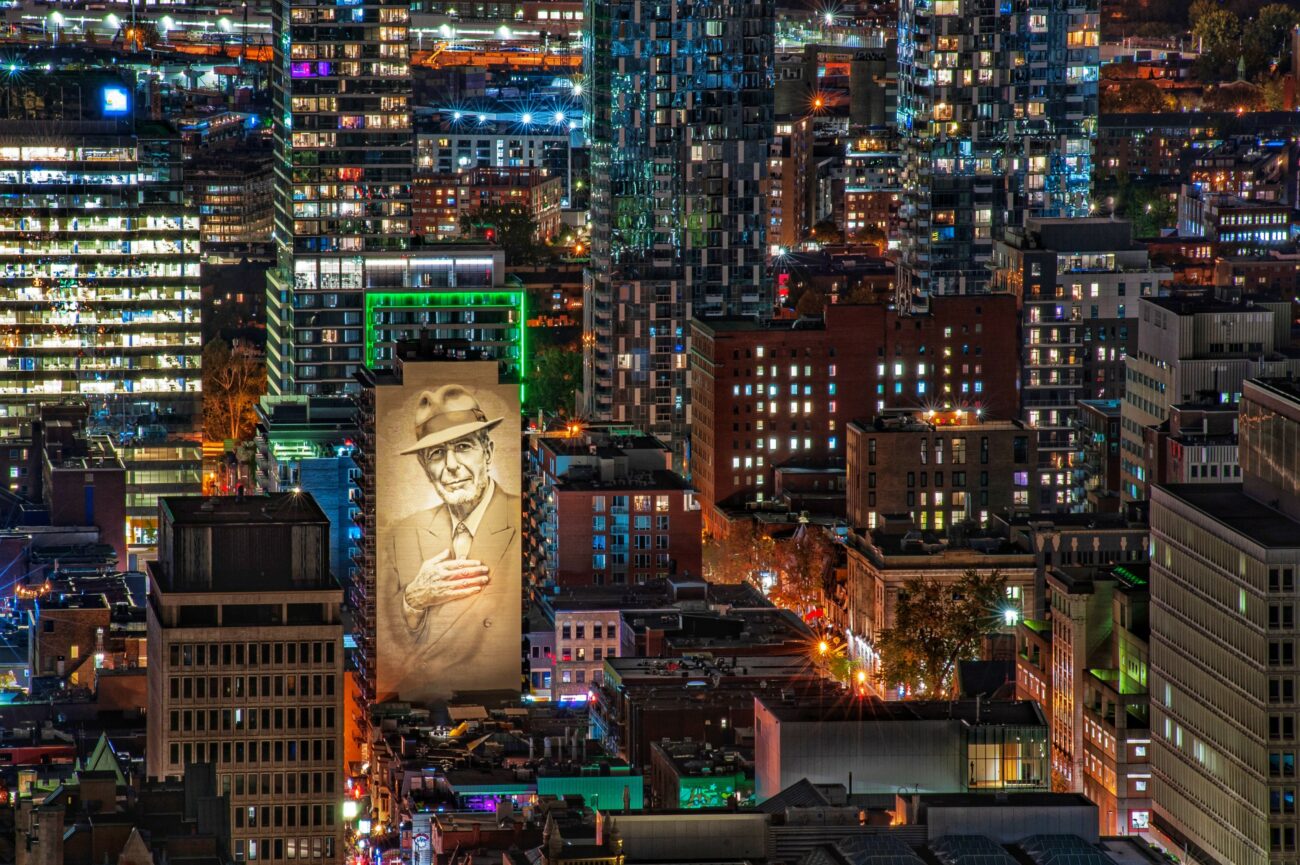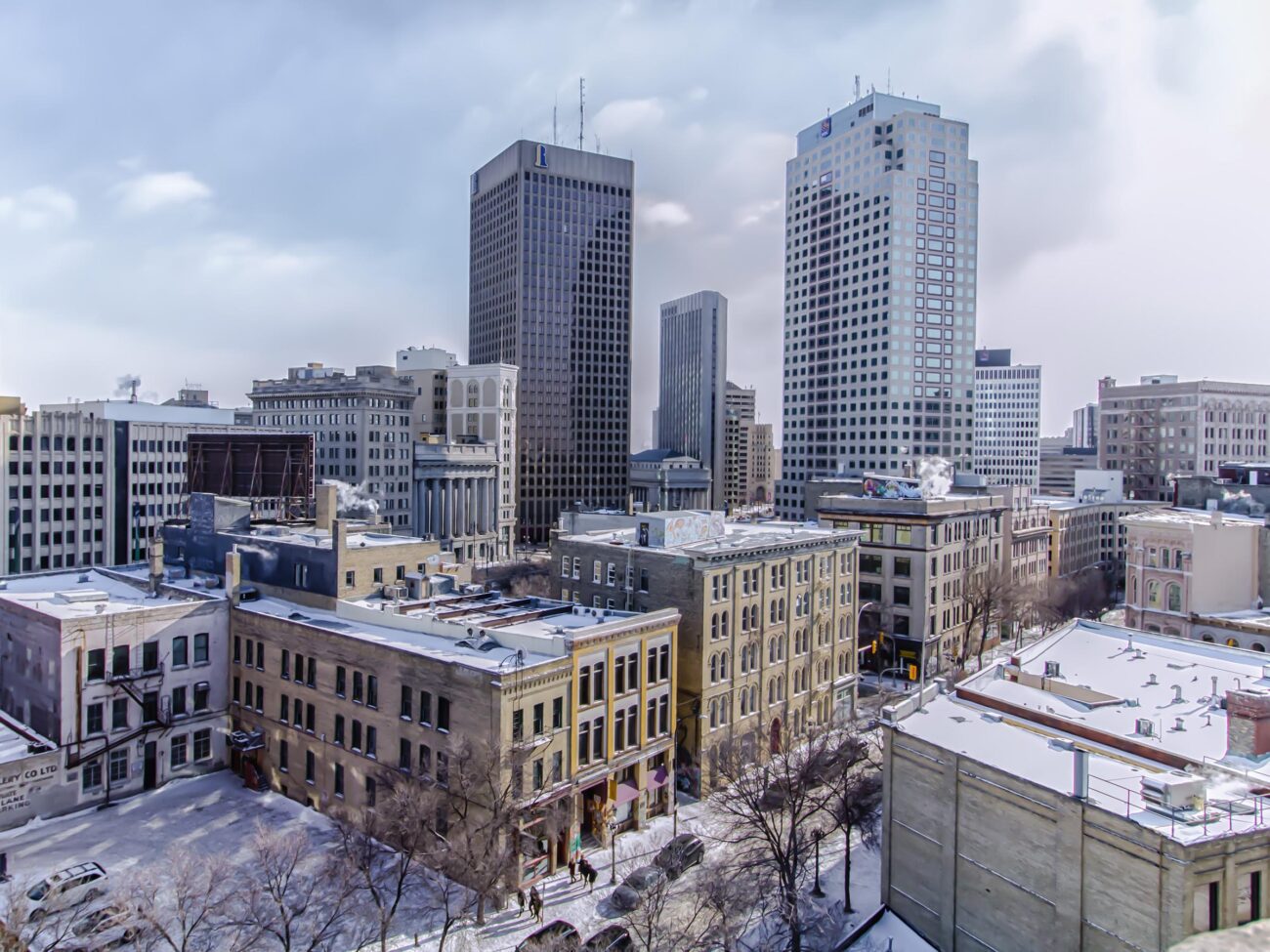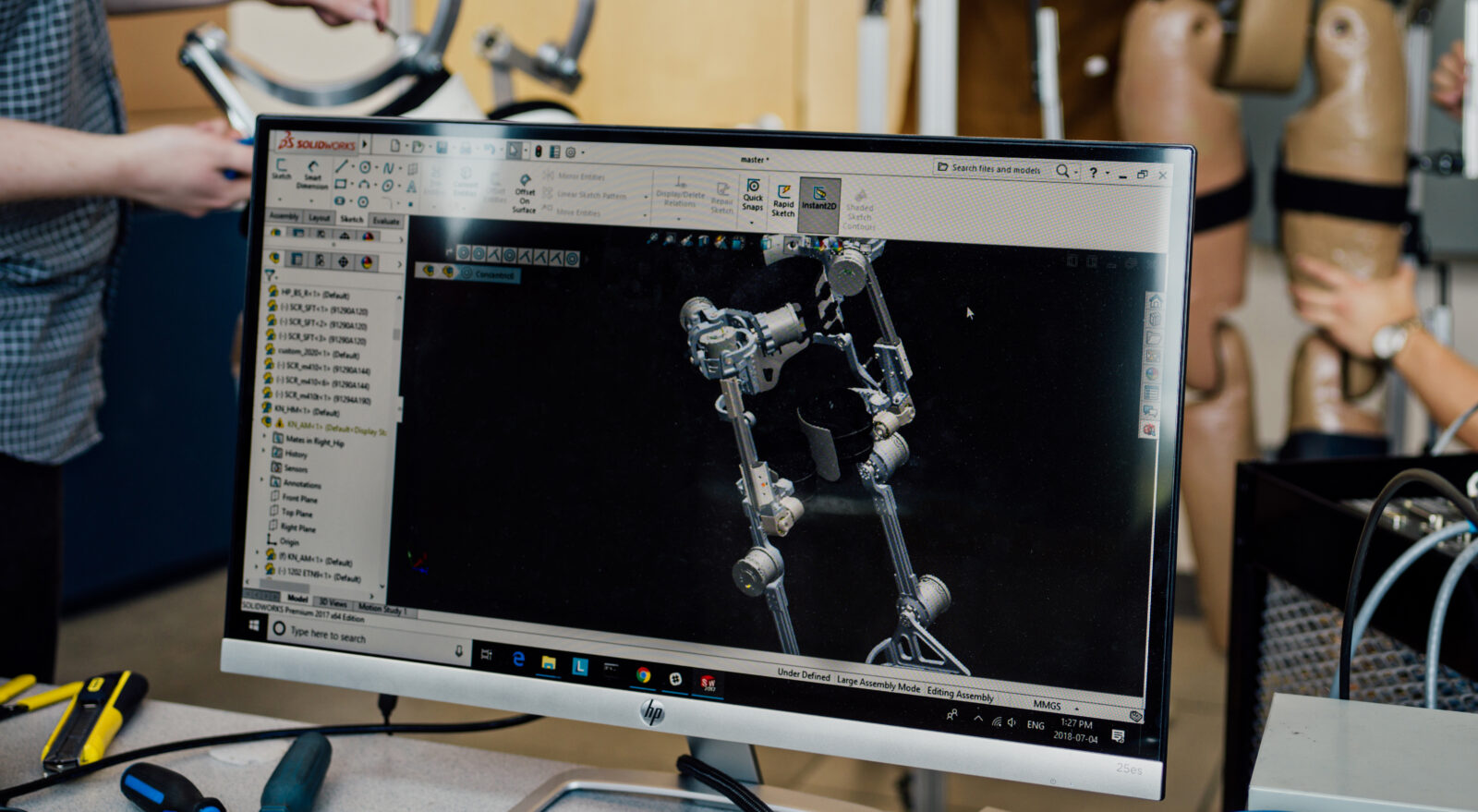The country is now emerging as a world leader in the field, with major research institutions, start-ups, and academic thought leaders providing fuel for dialogue and knowledge exchange through impactful business events held in the country’s advanced manufacturing hubs.
Revolutionizing robotics
Innovation. That’s the reason why Canada excels in areas ranging from robotics to 3D printing and AI. The manufacturing sector—which includes everything from automotive to aerospace manufacturing—contributes an impressive CAD $201B to Canada’s GDP and counts CAD $378B in annual exports. There are 172 robots per employee in the country—a figure that is 74% greater than the world average—and institutions like the Canadian Centre for Field Robotics at York University are continuing to spur development by creating a field robotics laboratory for terrestrial robotic vehicles, unmanned aerial vehicles, aquatic robotics, and unmanned underwater vehicles.
Canada’s Advanced Manufacturing Supercluster—which is anticipated to contribute more than CAD $13.5B to Canada’s GDP over 10 years—is also bringing together manufacturers, technology providers, researchers, schools, government, investors, and business networks to help build on this innovation and world leadership in the sector. Couple the efforts of the supercluster with the Strategic Innovation Fund (SIF), which provides CAD $1.26 billion-plus to support the country’s leading industries, with the fact that Canada is the first G20 country to offer a tariff-free zone for manufacturers, and it’s easy to see why the sector is skyrocketing and providing visiting associations with a wealth of knowledge and resources for conferences and events.
As Virginie De Visscher, Senior Director of Business Development, Economic Sectors for Destination Canada Business Events puts it: “There is no substitute for the creativity and energy that ignites when groups of like-minded people come together in the same place. When organizations choose to host their event in one of Canada’s centres of excellence, they not only gain access to some of the world’s safest, greenest, creative and culturally diverse and dynamic destinations—they also gain access to their industry’s thought leaders and innovators. These opportunities not only promote the transfer of knowledge, but they can lead to future collaboration, talent attraction, trade, investment and future leisure travellers. Such is the power of business events as a catalyst for economic nourishment and social and cultural change.”
Green & Cleantech
Montréal is considered Canada’s university capital, since the city is home to 11 universities and 60 colleges, and more than 40,000 students are in programmes associated with manufacturing innovation. It makes perfect sense, then, that manufacturing is the second-largest industry in the province of Quebec. In Greater Montréal, there are more than 6,300 manufacturing companies, including 200-plus aerospace companies. The region is a recognized aerospace hub and home to Canada’s largest cluster, boasting research facilities like Polytechnique Institute of Innovation and Design in Aerospace; Consortium for Research and Innovation in Aerospace; Institute for Aerospace Engineering, McGill University; and Institute of Aerospace Design & Innovation, Concordia University. Greater Montréal is also home to companies like Pratt & Whitney Canada, Bell Helicopter, Bombardier, and Sonaca, as well as The International Air Transport Association and the International Civil Aviation Organization.
In 2020, the region placed first for Foreign Direct Investment Strategy in fDi’s Aerospace Cities of the Future 2020/21 rankings, and, this year, the government announced a CAD $693M investment for Quebec’s aerospace industry, with a focus on green aviation and clean technology. As Prime Minister Justin Trudeau said in an article on Global News, the investment will help secure “the industry’s long-term future in Canada by developing green aviation projects and more clean technologies. Some of these technologies will take decades to develop so there is absolutely no time to waste.”
Thanks to all of the research and investment underway in Montréal, the city has attracted a number of key business events in the sector, including the 2019 IEEE International Conference on Robotics and Automation; the 7th edition of Aeromart Montréal in October 2021, which takes place every two years; the 13th International Symposium on Supercritical Fluids, slated for 2022; and the Institute of Industrial and Systems Engineers 2024 Annual Conference & Expo.

Accelerating aeronautics
In terms of aerospace sub-sectors, Halifax is a leader in the defence industry and boasts the highest concentration of Canada’s military assets, including an air force base and the Maritime Warfare Centre. The city is also home to nine of Canada’s top 10 defence companies, more than 30% of the country’s leading defence companies, and more than 6,000 experts, technicians, researchers, planners, and makers in the aerospace field.
Over in Waterloo, meanwhile, the city features more than 1,950 manufacturing companies across all sectors, making it a major global technology hub—particularly in the sector of advanced manufacturing. In addition, Waterloo is also home to Canada’s largest robotics and automation cluster, and graduates in the city are more likely to have studied science, technology, engineering or mathematics than anywhere else in the country. In fact, Canada’s first Spatial Atomic Layer Deposition (SALD) system, a nanoscience technique used in the micro-electronics industry, was the product of seven University of Waterloo students. In addition to featuring renowned institutions like the Waterloo Institute for Sustainable Aeronautics (WISA)—considered a world-leading hub for sustainable aviation and aerospace research, technology, and education—Waterloo also counts aerospace companies like Honeywell Aerospace and Rockwell Automation residents. The city is also attracting impressive business events like True North, Communitech (2018 and 2019); the virtual HI-AM Holistic Innovation in Additive Manufacturing Conference in 2022, which will bring together more than 100 additive manufacturing experts; and the annual AutoTech Symposium.
Western Canada’s powerhouse
In Western Canada, Winnipeg tops the list as the largest aerospace manufacturing hub, and features the third-largest volume of aerospace products and parts exports in the country. The city, which is the capital of Manitoba, is also home to the largest centre for heavy vehicle and equipment manufacturing in North America and is making serious progress in technologies designed to reduce greenhouse gas emissions.
Winnipeg boasts more than 844 advanced manufacturing companies and 12 unique research and development facilities. One of the facilities is the GE Aviation Testing Research and Development Centre, where the development and certification of GE Aviation’s fleet of aeroengines—which encompasses more than 60% of the world’s installed commercial aircraft engine fleet—takes place. Initially designed for ice certification testing and cold-star testing, the centre—rated an “Aviation Wonder of the World” by Skies magazine—has since expanded to include endurance testing, as well as dust and hail ingestions testing. As Elyse Allan, former president and CEO of GE Canada, stated in the article, Winnipeg’s climate made it “a natural choice for icing certification testing.”

As Dayna Spiring, president and CEO of Economic Development Winnipeg, puts it: “Winnipeg’s advanced manufacturing sector is one of the nation’s best. Innovative companies and a well-connected industry generate opportunities for strong programming and knowledge sharing for delegates [who attend events in the city].” This is why the city was chosen as host for events like CWB Group’s CanWeld Conference & Expo and Crane Rental Association of Canada’s Annual Convention in 2018.
Cold weather testing
Another destination that is perfect for cold weather testing and certifies a large percentage of new jet engine models is Yellowknife, which sits north of 60˚ in Canada’s Northwest Territories. Considered Canada’s coldest winter city, Yellowknife boasts 105 cold days a year, and 52 very cold days, which see temperatures dipping below minus 30 degrees Celsius. “As the major gateway airport to the Northwest Territories, conditions at Yellowknife Airport in the winter are cold, clear and dry,” explains Katrina Nokleby, NWT Minister of Industry, Tourism and Investment.“Yellowknife Airport has all of the facilities and services required to be a testing site, coupled with airport-based businesses that understand the needs of the aerospace industry.”
This is why Texas-based aerospace manufacturer Bell, for example, sent more than 40 employees and two of its next-generation 525 Relentless helicopters to the city for three months in 2019, in order for the new model to be certified. Yellowknife is also where the Northern Air Transport Association (NATA) was formed more than 50 years ago, and the Northern Air Transport Association Conference and Trade Show is slated to return in 2022. With a focus on supporting the economic development of northern and remote Canada, NATA operator members work with various airport agencies and on projects like alternate material testing for remote airport gravel strips. As executive director Glenn Priestley explains, “There is, of course, interesting electric/hybrid engine technology being done by several companies, and the dream of the use of dirigibles and drones are becoming closer to a reality. In the meantime, NATA operators are experts in the delivery of everything required in the north with a tradition of innovation and long-standing cooperation amongst members, which is perhaps a different culture set than in other areas.”
This innovation and cooperation across the sector is spurring serious growth in terms of business events coming to Canada to utilize the many top-notch research facilities, world’s largest advanced manufacturing companies, and leverage the knowledge of local experts who help contribute to meaningful conversations and knowledge-sharing in the rapidly developing sector.
To tap into the disruptive ecosystem, event planners should consider hosting their next event in one of Canada’s knowledge hubs. For more information, head to businesseventscanada.ca.
